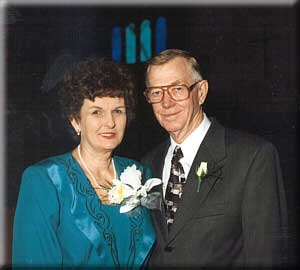Hope For Life As An Old Man And The Sea
Rob Maher knew from an early age that he would make his life at sea. He began maritime training in New York City during high school. He started this training when he was about 15 years old, circa 1948. Class was held aboard an old Liberty ship for three hours a day. The ship is now a museum.
After graduation from high school, in 1952, he started working as a seaman on "sea river" tankers for the company then known as Esso, now known as ExxonMobil. The tankers Rob worked on were responsible for the uploading of petroleum products from refineries and, of course, unloading of refined products and crude. He was with the company for its transformation from Esso to Humble to Exxon. He started as an ordinary seaman.
Rob worked 80 days "on", 40 days "off." Despite this schedule, he managed to woo and, shortly after on April 30, 1955, to marry Theresa, known as Terry. A few years later their daughter Bernadette was born. They then had a second daughter, Regina. Nine years later they had Robert, also known as Rob.
Whenever Rob's ship arrived at an oil terminal to upload petroleum products, the first order of business was to call home, to speak with his wife and children. He did not work on the side during his 40 days off; he spent this time with family, and with the gracious consent of Terry, fishing.
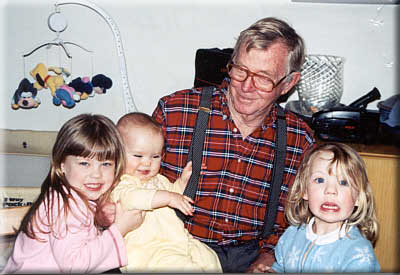
Over the years, Rob worked his way up to able-bodied seaman, third mate, second mate, and finally first or chief mate. He retired from the company's service in 1980.
Terry and Rob Maher have now been married for 48 years. In retirement, Rob enjoyed vacationing in upstate New York with Terry, spending time with his three grandchildren, and surf-fishing for sea bass. He is looking forward to the arrival of a fourth grandchild, due in November. Their son Rob is a teacher who is attending night law school at St. John's University in New York. Regina lives and works in Florida, but remains close over the phone and frequent trips back to New Jersey. For over a year, the Mahers have lived with their eldest daughter, Bernadette, and her family in Somerset, New Jersey.
They had not intended to stay that long. A fire had totally destroyed the Edison, New Jersey condominium in which they lived. The plan was to stay with Bernadette's family for a few months while their new home was being built. Rob also planned to care for Terry while she underwent needed cataract and knee surgeries. But then mesothelioma placed these and many other plans on hold.
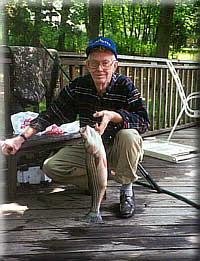
Rob's troubles began during the first week of the month of May with the onset of severe back pain. His primary care physician, who is also a cardiologist, had him admitted to John F. Kennedy Hospital in Edison, New Jersey. Chest films revealed the presence of right-sided pleural effusions. Rob underwent a thoracentesis which produced about a quart of fluid. Analysis of fluid and tissue drained from his chest cavity by the hospital's pathology laboratory resulted in a diagnosis of mesothelioma on June 10, 2003. He was hospitalized for five pain-filled days and released from the hospital around Father's Day. Mr. Maher went into deep shock when his doctor told him that he had an incurable form of asbestos-related cancer.
On June 23, 2003, Rob met with Dr. Raja M. Flores, a thoracic surgeon at Sloan-Kettering. The Mahers provided Dr. Flores with the CT scans, chest films and slides made from the pleural effusions. Dr. Flores told Rob that he has epithelial mesothelioma, the least aggressive of the three cell types. He offered Rob two types of surgery as possible treatment options. He could perform an extra-pleural pneumonectomy, removing the right lung, the pleura surrounding the lung, and the pericardium (the lining around the heart). As an alternative, the surgeon could perform a pleurectomy, peeling the pleural lining from the lung. He explained that if pleurectomy was chosen, the possibility would remain during surgery that once the chest cavity was opened, he might find tumor that would require removal of a portion or all of the lung, or of the pericardium. Dr. Flores discussed the pros and cons of each procedure, leaving the choice to Rob, but recommending the pleurectomy, if Rob passed tests establishing his suitability for surgery.
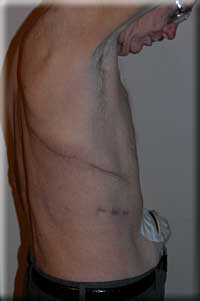
Dr. Flores preliminarily expressed doubts regarding Rob's suitability for surgery because of his diverticulitis. Dr. Flores scheduled Rob for a PET scan and cardiological workup to take place on June 27, 2003.
All of the pre-operative workup left Dr. Flores optimistic that Rob would be able to tolerate and recover from surgery. Rob decided to proceed with the pleurectomy, which was scheduled for Friday, July 18 at Sloan-Kettering. He felt comfortable that he had made the right choice.
On the morning of July 18, as Rob was being wheeled into the operating room on a gurney, his anesthesiologist asked if he had taken any aspirin. Rob replied that he took an aspirin every day. Concerned that the blood-thinning effect of aspirin could make the surgery too dangerous, the anesthesiologist canceled the surgery, which was re-scheduled for Friday, August 1.
On that day, Dr. Flores performed a right-sided pleurectomy and right lower lobectomy. Dr. Flores was pleased with how much of
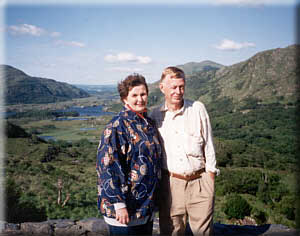
![]()
the tumor he was able to remove; he felt he had left "clean margins." Rob surprised his family by sitting upright the day after surgery, doing his walking, and wanting to get out of the hospital before the expected ten-day stay. However, his pain waxed and waned as he was weaned off morphine and other pain medications.
Rob's recovery time was expected to be four to six weeks, to be followed by radiation therapy. He in fact recovered sufficiently to start radiation therapy on September 25, 2003. He receives radiation every day, five days a week, for five weeks. After that, imaging tests and blood work will be done to gauge the success of radiation therapy.
Rob misses being able to do the things he loves. He cannot care for his wife during the surgeries she needs. He cannot pick up his grandchildren, and a sudden movement by one of them could cause him great physical pain. The pain is always there, sometimes a dull ache managed by Percocet, sometimes sharp and stabbing despite the medication. He cannot drive a car. He dreads the rides into New York City for radiation therapy because of the jolts of potholes and of sudden stops and swerves through traffic. He does not have the strength to walk up and down the beach, casting his line into the sea again and again, trying to reel in a big, crafty rockfish.
When he retired, Rob saw himself growing old, living life next to his first love, the sea. He clings to the hope that Dr. Flores' skill and care will help him realize that vision. We will keep you posted on this gentle mariner's fight with mesothelioma.
*** POSTED OCTOBER 9, 2003 ***
Mr. Robert Maher passed away on September 12, 2004

